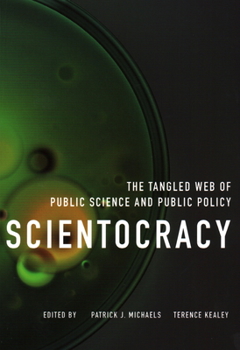Scientocracy: The Tangled Web of Public Science and Public Policy
Select Format
Select Condition 
Book Overview
Scientific research is the time-honored key to objective knowledge. In the past it was funded pluralistically, but today certain portions of the market for knowledge are dominated by a single buyer, namely the government. This is especially true in the research fields that impinge on the regulatory sphere, such as pollution and climate change. As discussed in Scientocracy: The Tangled Web of Public Science and Public Policy, science today is in systematic trouble.
The popular notion is that science is a force for good. Knowledge, derived from theory and experiment, gives rise to technological advancement, which results in improved lives for all. The editors and authors of this book believe that this is not always the case. Science can be a force for good, and it has enhanced our lives in countless ways, but even a cursory look at the last century shows that what passes for "science" can be detrimental. This book examines a number of recent abuses of science in research areas including nutrition, pollution, drugs and the opioid crisis, and global warming.
Please don't let this book make you into a science cynic. Science has done much for us under both public and private funding; we certainly live longer, healthier lives Many fundamental questions have been answered, especially in physics. We look forward to a future of still more vigorous scientific discovery; we ask only that science be structured in a more polycentric manner, and less subject to authoritarian abuse. We believe that the chapters you are about to read will more than justify these desires.





